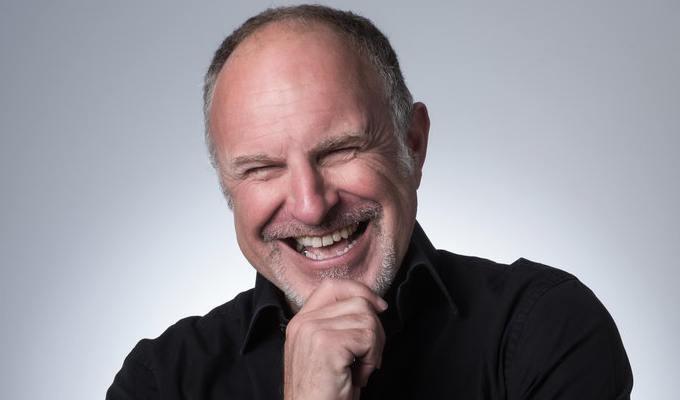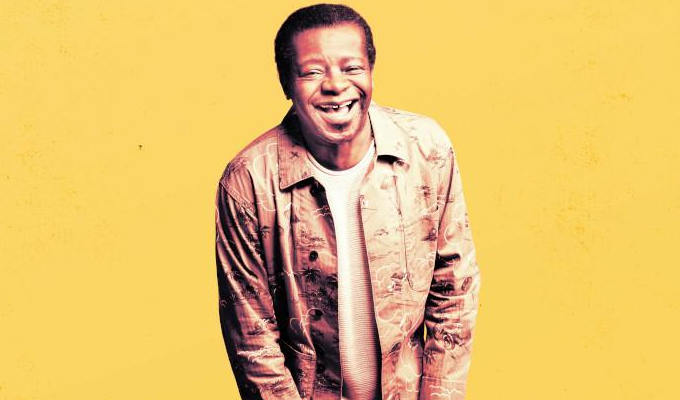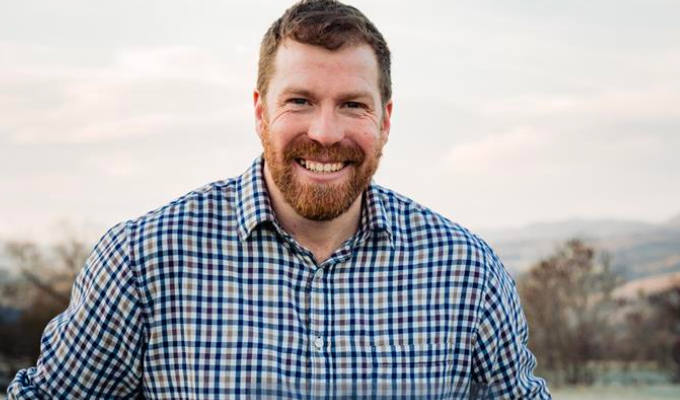
Go Jerry
Interview with Dave Spikey
Phoenix Nights deservedly made a star out of Peter Kay, but also raised the profiles of other stand-ups in the cast - perhaps none more so than Dave Spikey, co-writer and the man behind club compere Jerry St Clair. Jamie Murphy met him...How did you start out?
I started by writing comedy. I never really meant to get into stand-up at all, but I'd written so much material that eventually I'd started doing it. The only opportunities when I started out in 1990 were in the working men's club and social club circuit. Then places like the Buzz Club opened in Manchester. When I first started playing in these clubs people turned their noses up a bit because they thought I was too mainstream. It was original stuff, but I had a hard time in the early days with people just dismissing me as mainstream. But on the mainstream circuit I got labelled as an alternative comic!
How have you seen things change in stand up?
I think that the mainstream and the alternative - definitions I hate - have come together more. There's more common ground now. There's a place for every sort of comedy. Funny is funny. I've always considered myself just a comedian and I just adapt to whatever audience I get booked to play for. So if I get booked to play at The Grand in Blackpool for a seaside audience, I'll have a certain act, for a comedy club I'll have a different act. It's having that flexibility. The other change is the expansion of comedy clubs outside London. When I first started I had to go to London every week and it was hard work. But now you can get a good start without going to London. There are places in Manchester, Leeds, and Liverpool.
How do you think the northern comedy scene compares with down south?
I think it's really competing with London but it's a completely different style. The comedians on the London circuit, generally speaking, are all fine technically, competent and funny, but they miss that certain something that northern comedians have. It's part of our culture, it's the way we speak, the way we deliver tag lines. At the moment northern comedy is in vogue.
If you look at the great comedians over the years I'd guess that 75 per cent were northern. The audiences are different, too. In London they have the opportunity to see everybody on the circuit. So when you go down, you'll be compared against the best comics. So don't go to London until you know you can hold your own.
Speaking of northern comedy being in vogue what do you think is behind the critical praise for Phoenix Nights?
I'd like to think it was the amount of work we put into it. The amount of realism we put into it and the care we took in layering gag upon gag upon gag. We'd look at every scene to make sure we weren't missing a trick. Taking up every opportunity for a funny line even if we have to hide them - a sign on a wall or a song on the radio in the background, we can't let a scene go by without layering it.
It took us two years to write Phoenix Nights. Because we'd keep revisiting it and cutting it down and cutting it down and getting rid of all the dross. Sometimes you think "hang on that's bloody good - but does it contribute?"
And Phoenix Nights has that fly on the wall feel to it and I think that is one of the main ingredients in its success. Plus I think - and a lot of people may not agree - that using stand-ups in all the major parts was a stroke of genius from Peter because a lot of it is, not necessarily improvised, but extemporised. As we go along we do shuffle scenes around and we do add bits on and take bits off because as stand-ups we can. Whereas actors are fantastic at delivering the same lines over and over again but aren't as flexible
What was it like writing That Peter Kay Thing and Phoenix Nights? Did you expect them to be as big as they turned out to be?
I don't think you ever anticipate it. I think when you're writing you just do the best job you can. Being a comedian you have to have that contemporary feel. You have to instinctively put your finger on what's funny and what's not at that time. And you just get on with it and hope you write as best as you can.
That Peter Kay Thing and the first series of Phoenix Nights didn't rate highly in terms of viewing figures, but for the second series word of mouth had spread. And I think that the delay between the first and the second series - which was forced on us by Channel 4 and we were actually quite against - worked in our favour because the anticipation just grew and grew.
Do you still get the same buzz from stand-up after TV?
Oh I do. I love stand up, its my real passion and the frustrating thing about it is, although, I've been on the circuit for ten years, I've really got the break and the opportunity to play to big audiences. But now, through Phoenix Nghts, the pull is there. So I'm doing a headline tour next year and it's what I've always wanted to do. I'm doing twelve gigs, 500 seaters. It's an ambition I've always had, and without Phoenix Nights I don't think I'd have been able to do it.
How did it feel packing in your day job last year?
I was chief medical scientist at the Bolton Royal Hospital. I was a fellow of the institute of bio-medical science and I specialised in haematology, specifically the genetic abnormalities of haemoglobin. So you know a good grounding for comedy!
And that's why I never really took the plunge early because not only had I got a good job and a well paid job but I had a very responsible job and a job I liked doing. But the NHS is on its arse and by the time it came round I was glad to leave and I've never thought twice about it.
How much of Jerry is you and how much of the input in the series was you?
It's difficult to say there's three of us writing it and we all bring different things to the table. My experience in the clubs and Peter's experience in the clubs meant we all knew these characters. Every club has a cantankerous club secretary, every club has a compare who may be a brickie through the week but as soon as he gets up on stage he's bloody Bruce Forsyth. It's his Caesars Palace; he owns that stage when he's up there. And they all have committee members that talk shite.
There's quite a bit of me in Jerry really. He's a nice bloke, dead straight and I think I am. His material has never changed for 20 years and he has his penchant for singing totally inappropriate songs cos he thinks he's trendy, like Brimful of Asha.
I love Jerry. I wasn't even gonna be in it and then Peter said, 'you should audition'. I had to audition like everyone else. Just because you're a stand up doesn't mean you can act. And I'm still not sure now! But I did a fair job.
What's the worst gag you've ever told?
Well I used to have a thing for one liners and I look back and sometimes think did I really used to do that joke? A very quick one: Two policemen sat by a seesaw I said what happened to you? We've been tipped off
First published:November 13, 2002
Published: 22 Mar 2009






